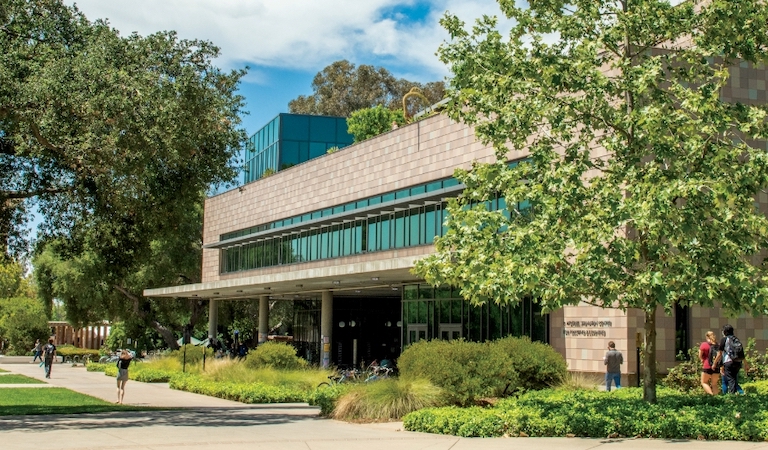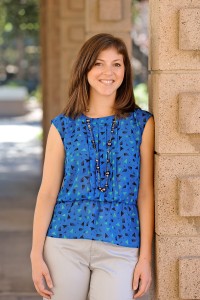Harvey Mudd College’s Hixon Center Re-envisioned and Expanded
September 20, 2021
The former Hixon Center for Sustainable Environmental Design has reopened this fall as the Hixon Center for Climate and the Environment and is poised to become the locus for new climate studies courses as well as other curricular, co-curricular and research endeavors at Harvey Mudd College and in the Claremont consortium.

In tandem with the center’s reopening, Lelia Hawkins, associate professor of chemistry, has been appointed the inaugural Hixon Professor of Climate Studies. She conducts research in the field of atmospheric chemistry and studies how atmospheric particles in urban settings (like smog) are transformed as they age, specifically in fog and cloud water. Hawkins’ work combines traditional analytical techniques with highly specialized equipment and statistical analyses to better understand air pollution.
Hawkins will retain her affiliation with the Department of Chemistry and expects many of her new offerings to be of interest to chemistry students.
“Lelia’s visionary leadership has been instrumental in bringing the new Hixon Center to fruition, and I am delighted that she has accepted an ongoing role within the Hixon Center,” says Lisa Sullivan, vice president and R. Michael Shanahan Dean of the Faculty. In the coming months, the College will initiate a search for a full-time director of the center. Until that director is named, the existing Hixon Initiatives Steering Committee, chaired by trustee Michael Schubmehl ’02 (math), will coordinate climate and environmental Clinics, speakers and student sustainability efforts.
Schubmehl says, “The center will serve as a home for students and faculty to explore their passion for the human and technical facets of a wide variety of environmental issues, with particular emphasis on solutions to the grand problem of climate change. Mudd students across all fields can benefit greatly from climate literacy, and the first offerings through the Hixon Center—Introduction to Global Change and Climate Science and Human Behavior—aim to provide that.”
Students looking to apply the skills and perspectives they learned in the Core will have a small menu of courses, Clinics and research programs addressing everything from the physical science of climate and energy to the psychology, economics and policy questions that shape the human response to climate change. “Mudders really stand out from the crowd in their ability to roll up their sleeves and make a difference on these problems, and the Hixon Center will provide them with the requisite knowledge, confidence and connections,” says Schubmehl.
The first iteration of the Hixon Center was defined by student-faculty collaborations on sustainability, both in the classroom and around the campus. Center staff will build on that legacy by bringing together students and interested faculty across department lines for courses, research and Clinic programs that address environmental issues, while also providing a focal point for collaborations with the administration and the board of trustees to improve the College’s carbon footprint.
The new Hixon Center will soon be located on the ground floor of the Olin Building, a central location that invites the participation of every department at the College in the critical work of developing climate change solutions.
